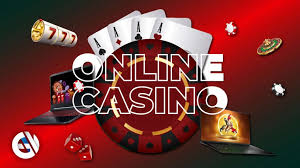
Exploring the Popularity of Poker
Poker has transcended from a simple card game to a global phenomenon that captivates millions. Its history is rich and varied, steeped in stories of chance, strategy, and big winnings. Today, the game is played in various formats, from friendly home games to high-stakes tournaments in glamorous casinos. One key factor in its rise is the expansion of online platforms, such as Exploring the Popularity of Poker Tournaments in Bangladesh https://aviator-jeux1.com/, that allow players to play anytime, anywhere, further solidifying poker’s place in modern entertainment.
A Brief History of Poker
The origins of poker are somewhat shrouded in mystery, but it is widely believed to have evolved from several different card games throughout the years. Some trace its roots back to Chinese games from the 10th century, while others argue that it emerged from a 17th-century Persian game known as As-Nas. The game we know today began to take form in the early 19th century in the United States, particularly among workers on the Mississippi River. The rules were simple, and the game quickly gained traction due to its blend of skill and luck.
The Cultural Impact of Poker
As the game grew in popularity, it began to infiltrate popular culture. Movies such as “Rounders” and “Casino Royale” romanticized poker, elevating it to a status symbol of intellect and risk. Additionally, television shows featuring poker tournaments, like the World Series of Poker (WSOP), have played a pivotal role in shaping public perception. These broadcasts not only showcase the high-stakes nature of the game but also highlight the personalities behind the cards, drawing viewers into strategies, bluffs, and tense moments of play. This cultural prominence has made poker synonymous with entertainment and competition, further enhancing its appeal.
The Online Revolution
The advent of the internet has transformed poker on an unprecedented scale. Online poker platforms have democratized access to the game, allowing people from various backgrounds and locations to play from the comfort of their homes. This transition made it easier for novices to learn the game and practice their skills without the intimidation of a live setting. The rise of mobile gaming applications means that players can participate in games on-the-go, ensuring that poker remains a highly accessible form of entertainment.

Social Interaction and Community
At its core, poker is a social game. Whether in person or online, players form communities that share strategies, discuss experiences, and support one another. This sense of belonging is especially felt in online forums and social media, where enthusiasts can connect regardless of geographical boundaries. The rise of live-streaming platforms has also allowed skilled players to share their knowledge with a wider audience, fostering an environment of learning and connectivity.
Skill vs. Luck
One of the most appealing aspects of poker is the blend of skill and luck involved. While the initial deal may be entirely random, players must use their analytical skills, emotional intelligence, and strategic thinking to succeed. This combination creates a psychological battlefield, where players must not only manage their own cards but also read their opponents’ behaviors. The importance of skill in poker elevates the game from mere chance, appealing to those who enjoy a mental challenge.
Women in Poker
Traditionally, poker has been perceived as a male-dominated space. However, this narrative has shifted significantly over recent years. Female players are increasingly making their mark in the poker world, both at casual tables and in high-stakes tournaments. Events like the Ladies World Series of Poker have also helped promote inclusivity and provide a platform for talented women to shine, paving the way for a brighter future for all who share a passion for the game.
Conclusion
The popularity of poker is a multifaceted phenomenon, deeply rooted in cultural heritage, social interaction, and the thrill of competition. As it continues to evolve, the game adapts to the changing landscape of entertainment that the digital age has ushered in. From area homes and casinos to global online platforms, poker remains an enduring symbol of strategy and chance, with a community of passionate players fueling its growth well into the future.